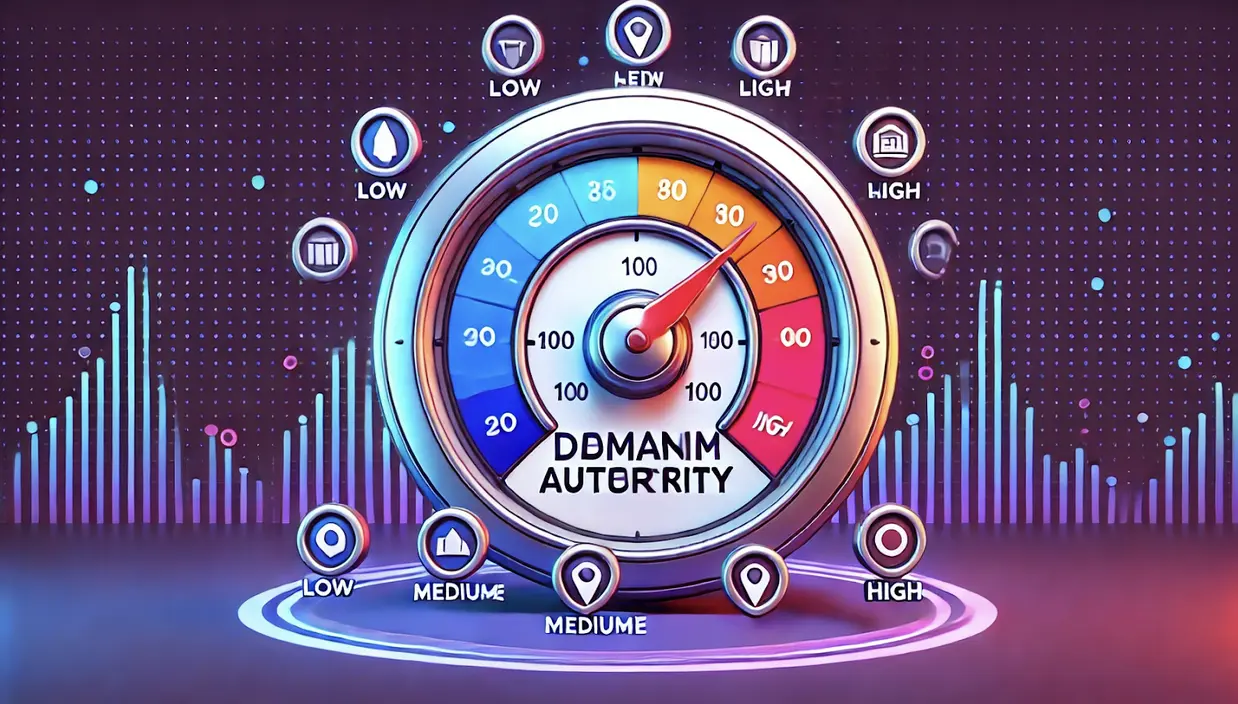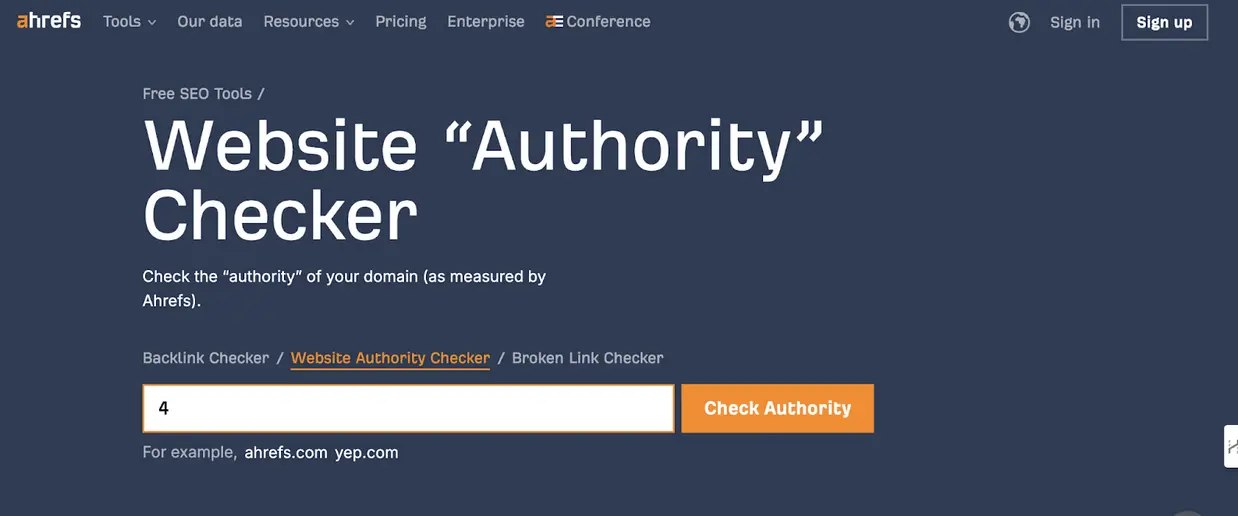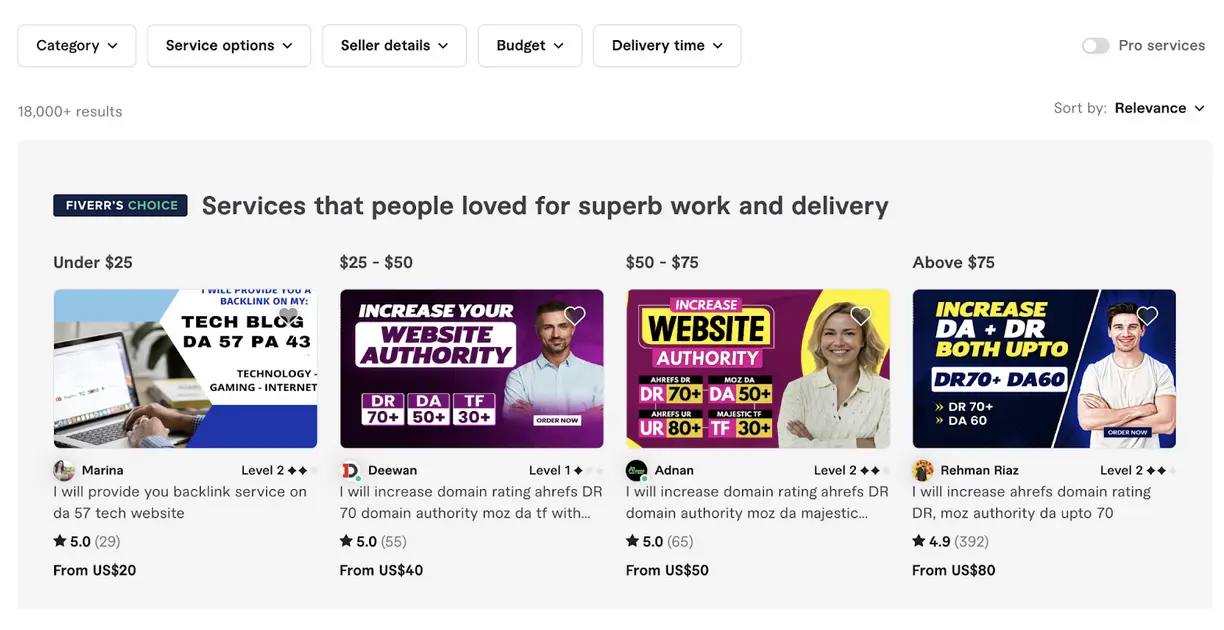
13 Nov Domain Authority Explained: How It Impacts Your Off-Page SEO
What is domain authority, and why does it matter? In simple terms, domain authority is a metric that predicts how well a website might rank on search engine results pages. It is commonly used interchangeably with domain rating, a metric by Ahrefs.

This score ranges from 1 to 100 on tools such as Moz and SEMRush.
Higher scores indicate a greater likelihood of ranking well.
The concept of domain authority is not a direct ranking factor used as announced by Google.
However, domain authority and rating are comparative metrics widely used in the SEO community as a benchmark for evaluating a site’s potential ranking performance.
Table of Contents
How Domain Authority is Calculated
Domain authority is calculated using multiple factors, such as the number, relevance and quality of external backlinks pointing to a website.
The different tools: Moz, Semrush and Ahrefs calculate the concept of domain authority or rating differently.
It is also worth noting that domain authority differs from page authority, which measures the likelihood of a single page ranking rather than the whole domain.
Importance of Domain Authority in SEO
So, why is domain authority important?
Think of domain authority as a way to gauge your website’s credibility and authority in its niche.
Higher DA scores typically suggest a site has strong backlinks from other reputable sites, indicating to search engines that your content is valuable.
However, domain authority should be only part of a holistic SEO strategy, not the end goal.
In our experience as a SEO agency serving small businesses in different industries in Singapore, domain authority can be a vanity metric that is commonly used to misrepresent SEO goals.
High domain authority doesn’t guarantee rankings.
Is Domain Authority a Vanity Metric?
The reality is, without quality content and proper on-page SEO, a high domain authority might not yield the results you desire.
Typically, on Fiverr.com, you can type in something like “domain rating” and find services that will “pump up” your domain rating for you.

These Fiverr services usually provide you low quality backlinks that increase your domain rating. These services are cheap, and in fact dirt cheap. It can be tempting as compared to hiring out a white hat outreach based digital marketing agency like ThreeLittlePigs.Pro
These low quality backlinks can hurt your site in the long run.
Many think that a high domain rating will help you rank. However there are plenty of DR80, DR70 websites out there that don’t get any traffic at all.
Our experience demonstrates that domain authority IS a vanity metric if your links lack relevance and quality.
Two Link Building Strategies to Avoid:
- Web 2.0 Backlinks: These are often low-quality and provide no real SEO benefit.
- Press Release Distribution: Costly and ineffective, with links from low-quality sites.
Best Practices for Link Building:
- Editorial Backlinks: These are the gold standard. They are naturally added by website owners who find your content valuable and worth linking to.
- High-Quality PR: Instead of mass press releases, focus on high-quality press releases that are picked up by reputable media outlets.
Off-Page SEO Strategies to Improve Domain Authority
So, how do you go about improving your domain authority?
Here are some actionable off-page SEO strategies:
- Link Building: Acquiring high-quality backlinks from reputable websites is crucial for improving DA. Think of backlinks as “votes” of confidence from other sites. Effective link building techniques include guest blogging, creating valuable linkable assets (like infographics or comprehensive guides) and conducting digital PR campaigns.
- Brand Mentions and Citations: Not all backlinks are created equal. Brand mentions and citations: instances where your brand is mentioned online without a direct link can build authority and credibility.
- Social Signals: Social media links are no follow and are not a direct ranking signal as stated by Google. However, they are an indirect ranking signal.
- Content Marketing: The role of content in SEO can’t be overstated. High-quality, authoritative content can attract backlinks naturally..
Measuring and Tracking Domain Authority Progress
Tools like Ahrefs and SEMrush can help you monitor domain authority (DA) and Domain Rating (DR), another similar metric.
Key metrics to track include the quality of backlinks, the number of referring domains, brand mentions and overall website traffic.
Common Misconceptions about Domain Authority
One of the most common misconceptions about domain authority is that it is a direct ranking factor used by Google.
“So, my problem is that I don’t know of anything in ranking that would translate to “domain authority”, so can’t answer” Gary Illyes analyst from Google mentioned in 2016.
Here’s our take: domain authority can be a good benchmark, but it is not the sole factor determining your site’s success.
Conclusion
Domain authority is a helpful metric for assessing the potential SEO performance of your website compared to others. However, it’s not the be all and end all.
There are many examples that have demonstrated it is a vanity metric. You can go to Fiver and “bump up” your domain rating for little, but have poor rankings at all.
It’s recommended to focus on creating a high quality backlink profile, editorial links, quality content and to keep user experience in mind.



No Comments